
So you’re considering teaching English in South Korea with the English Program in Korea (EPIK)? EPIK is the Korean government’s program for bringing native English teachers into Korean public schools. EPIK can be a phenomenal way to move to Korea as an English teacher, but it’s not the route for everyone. There are many pros and cons to EPIK, just as there are with other ways to teach English in Korea. It’s important that anyone considering doing EPIK does their research and is prepared for a wide variety of outcomes. EPIK is extremely unpredictable, but it can be very rewarding if you’re open-minded (and get the luck of the draw).
I’ve lived and worked in Korea with EPIK for 3 years now. In these 3 years, I’ve experienced a lot of both the benefits and drawbacks of this program. However, I decided to continue renewing my contract because I felt that the program was my best option. Overall, I’ve been extremely lucky with my time in EPIK, from being placed in Seoul and getting a great apartment to (mostly) having proactive co-teachers and kind students. I hope that my personal EPIK Program review can help you decide whether this route is best for you or not. Please remember that everyone’s experiences in EPIK are different, so I encourage you to read other reviews as well.
Unfamiliar with the ways that you can become an English teacher in South Korea? EPIK is just one of them. Check out my comprehensive guide on exactly how you can do it.

EPIK Program Review: FAQs
EPIK vs. Hagwon?
When teaching English in Korea, there are 2 main types of schools you can work at: public or private schools (AKA “hagwons”). If you want to teach at a public school, you must apply to EPIK. If you want to teach at a hagwon, you will most likely apply directly to those schools or work with a recruiter. More on recruiters below.
There are pros and cons to both options, which I encourage you to research thoroughly. Some English teachers will do better at public schools, while some will do better at private schools. Keep reading for insight into my personal experience teaching with EPIK. This EPIK Program review can help you determine if it’s the right fit for you.
What are the EPIK Program requirements?
As of the time I’m writing this article in 2023, the requirements are as follows:
- Be a citizen of the USA, Canada, Australia, New Zealand, England, Ireland, or South Africa
- Be TEFL/TESOL/CELTA certified (100 or more hours)
- If you’re a certified teacher or majored in any education-focused field, you’re exempt from this requirement
- Hold at least a Bachelor’s degree from an accredited school, in any field
- Be in good physical and mental health
- Have a criminal record clear of misdemeanors or felonies
- Be under the age of 62
- Have a good command of the English language
- Have the ability and willingness to adapt to Korean culture and life
Check the most up-to-date eligibility requirements here.
What is the EPIK Program timeline?
EPIK has 2 intakes each year, with one in the spring and one in the fall. See EPIK’s estimated timeline for both intakes here.
I applied for the EPIK fall 2021 intake using a recruiter. Keeping in mind that everyone’s timelines are different, here is my personal timeline:
| Submitted my application | Feb 10 |
| Invited to an online interview | April 26 |
| Found out I passed the interview | May 3 |
| Submitted the required documents | May 6 |
| Found out my final decision | June 29 |
| Found out my placement (Seoul) | June 30 |
| Received the documents necessary for my visa | July 7 |
| Applied for my visa | July 7 |
| Booked my flight to Korea | July 7 |
| Visa got approved | July 23 |
| Picked up at the airport and taken to quarantine | Aug 7 |
| Mandatory COVID-19 quarantine | Aug 7 – 20 |
| Attended the mandatory orientation | Aug 21 – 25 |
| Began my contract (the same day I found out my exact school!) | Aug 26 |
Is the EPIK Program competitive?
EPIK accepts about 70 – 80% of initial applications for interviews. As long as you fill out the application fully and thoroughly, you have a good chance of getting an interview.
Interviews are where it gets a little more competitive. Make sure to show off your command of the English language and your ability to adapt to life in Korea.
For my complete guide on how to pass the EPIK interview, including 10 common interview questions and answers, check out 10 EPIK interview questions & how to ace them.
If you pass the interview, it’s crucial to send off your required documents right away. From passing the interview on, most people miss out on positions not because they aren’t approved, but because they aren’t punctual with their documents. If you have all your documents together quickly and correctly, you have a very good chance of getting a position.
Keep in mind that getting an EPIK position in Seoul or Busan is very competitive. You have to have the best of the best applications to even be considered for the big cities. Keep an open mind about being placed in a more rural area!
What is the EPIK Program salary?
EPIK monthly salaries start at 2.05 million KRW and go up to 2.8 million KRW. Salary depends on your level, which is determined by qualifications, and placement region. Check out the EPIK pay scale as of the spring 2024 intake here.
Should I use a recruiter to apply to the EPIK Program?
Using a recruiter costs nothing to you. A recruiter’s main job is to help schools find great teachers. They often work both with EPIK and private schools. Recruiters can help you find legitimate contracts, understand local labor laws, get the right documents together at the right time, and find a reputable school. If you are intimidated by the process and want an extra helping hand, I recommend using a recruiter. I used Reach to Teach and I don’t know how I would’ve handled everything without them. Do your research on your recruiter first to make sure they are legitimate.
However, plenty of people tackle the process themselves and prefer to exclude a middle person. Using a recruiter can slow you down, especially with EPIK. This is because you will be working on their slightly delayed timeline and waiting for their feedback instead of chugging ahead alone. I found it to be worth the wait, but it was stressful at times to feel behind others who took it into their own hands.
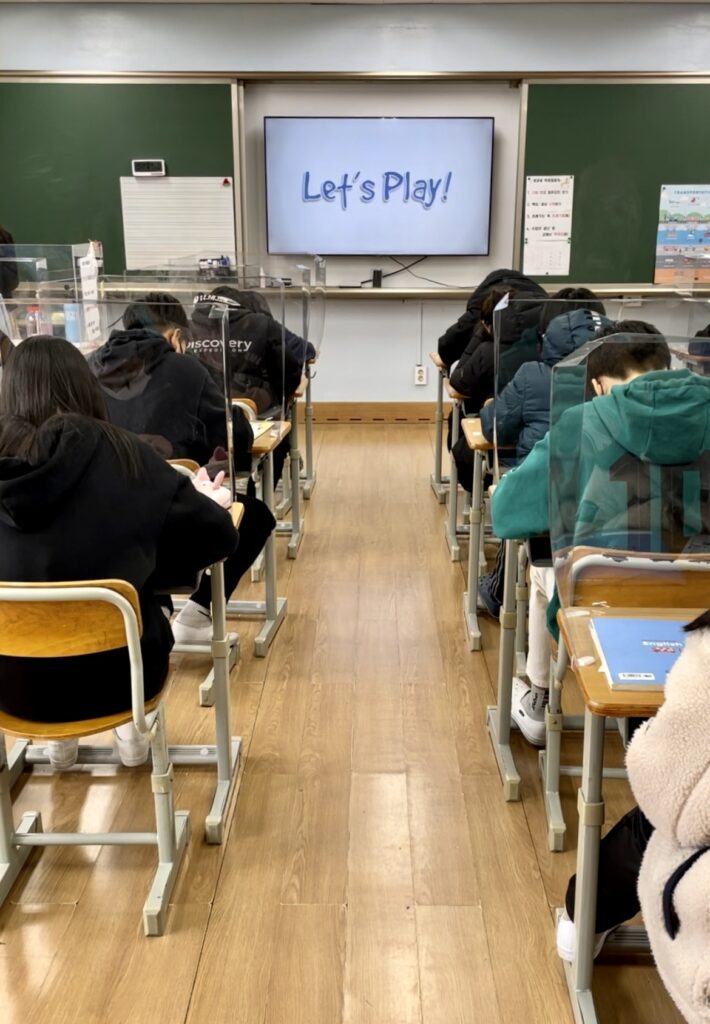
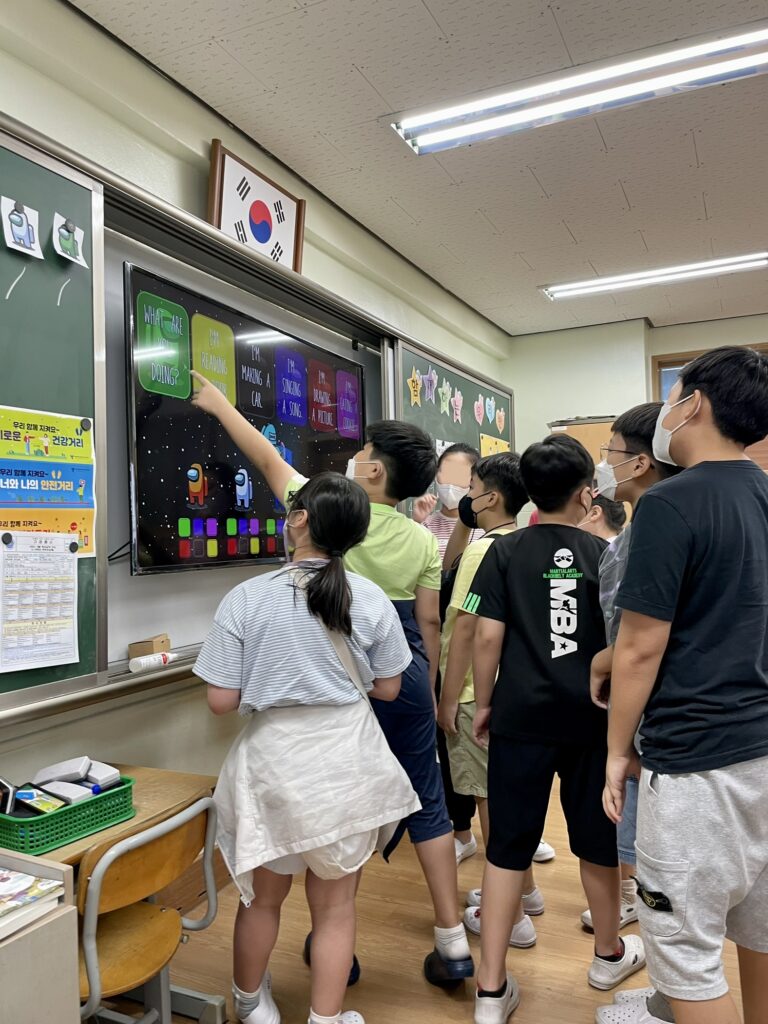
EPIK Program Review: Pros
Standard 8:30-4:30 workday
Most EPIK teachers work from 8:30 – 4:30 or 8:40 – 4:40. These are great hours compared to most hagwon hours, which usually start late and end late. They’re also great hours for the intense Korean work culture in general. Additionally, your lunch hour counts as one of your 8 working hours.
Free* housing
Your housing is included in your contract benefits, so you won’t be paying any money toward rent. This is especially great in Korea where security deposits are notoriously high and apartment hunting is notoriously difficult. After your first year, you can continue to accept the school-provided housing or take a housing stipend to put towards an apartment of your choice.
Keep in mind that management fees and bills are your responsibility to pay.
Lots of paid vacation and sick time
EPIK teachers get a lot of paid time off, with 26 days of vacation time and 11 days of sick time. For comparison, most hagwon teachers get between 11-15 vacation days and 3 sick days.
All public holidays off
In addition to your 26 paid vacation days and 11 paid sick days, you also get all public holidays off. There are at least 11 public holidays every year.
Lots of benefits
On top of all your paid time off and free housing, there are many other great benefits in the EPIK contract. These include:
- 1,800,000 KRW entrance allowance for your flight to Korea
- All-expenses-paid 8-day orientation upon arrival
- 300,000 KRW settlement allowance for getting set up in your apartment
- 700,000 KRW renewal allowance (Seoul is excluded)
- 50% of your medical insurance premiums covered
- A full month’s salary as severance pay
- 1,300,000 KRW exit allowance for your flight home
Low teaching hours and responsibilities
EPIK caps teachers at 22 hours per week, meaning you’ll be teaching 22 classes maximum every week. If your school asks to you teach over 22 hours, you’re entitled to overtime pay. Many of these 22 classes are repeat classes, meaning you’ll teach the same lesson at least a few times. This keeps preparation to a minimum. Because you’re a subject teacher, you don’t have to deal with as many responsibilities as other teachers.
Korean co-teachers
Korean co-teachers can be a contentious point for EPIK teachers. Some have bad experiences with them while some have good ones. However, I ultimately consider it to be a good thing that we are contractually obligated to have a Korean co-teacher in the room with us while we teach. Whether they actively help you teach or are just there to manage behavior or translate, this has always been something I’ve been glad to have. Co-teachers are always changing and some are better than others, but just their presence can help with classroom management.
Job security
EPIK is a government-regulated program, meaning that schools have to strictly follow labor laws such as the 22-hour teaching cap and on-time pay. You’re also not at risk of losing your job if your school closes down because EPIK will reassign you in these rare cases. Additionally, EPIK has program support that can help you resolve any problems that might come up. All of these benefits don’t come with hagwons, where teachers can be taken advantage of, lose their jobs suddenly, and have no one to support them in these cases.

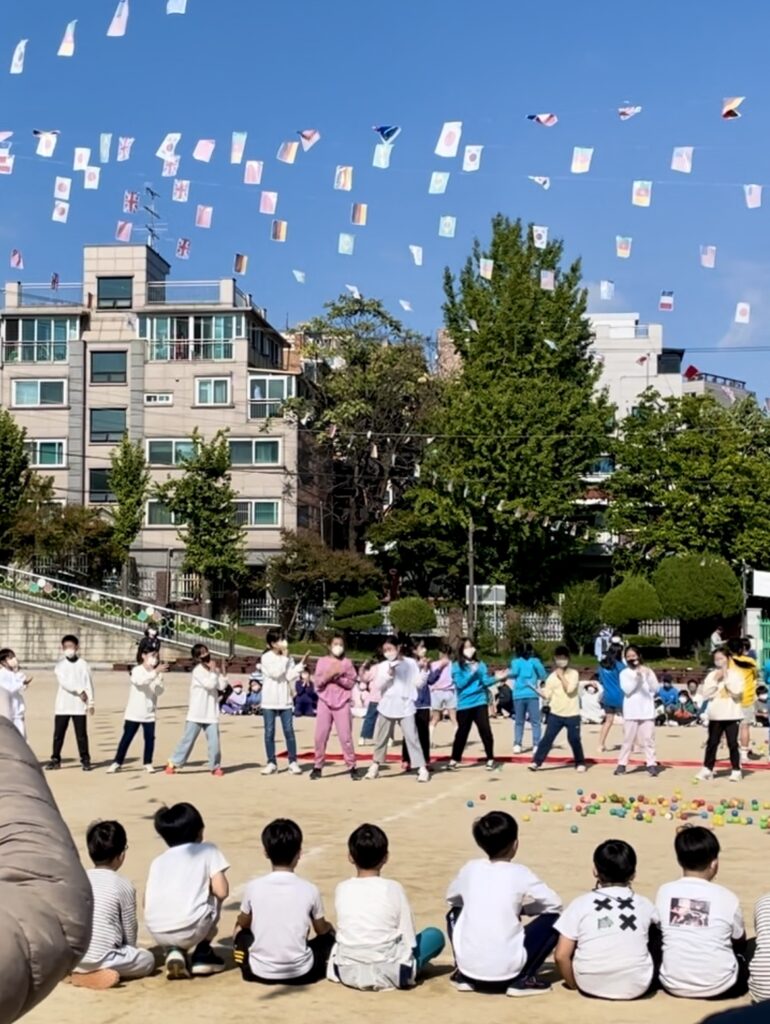
EPIK Program Review: Cons
No choice in placement
When you apply to EPIK, you are leaving your fate in their hands. You can put a preference location on your application, but there is no guarantee they will consider it. No one knows exactly how EPIK determines your placement, but it seems to ultimately be up to qualifications, open positions, and luck.
Not only do you not get a choice in your placement location, but you also get no choice in your placement school. It’s up to EPIK if you’ll teach at an elementary, middle, or high school. If you want to have control over where you live and work, EPIK is not the route for you! If you’re open-minded to whatever experience EPIK hands you, this is a great program for you.
Inconsistency in good and bad experiences
As previously mentioned, EPIK teachers get no say in their placements. EPIK places teachers anywhere in the country where there is demand. Inevitably, some teachers have better experiences than others. So much is out of your control, from your placement location and school to your coworkers and school-provided apartment, with some people getting the luck of the draw and some not. This is why you’ll hear both great and terrible reviews of EPIK. Just because someone had a great experience doesn’t mean you will, and just because someone had a terrible experience doesn’t mean you will. Everyone’s experience is different, so this program is a big risk.
Low salary with no room for negotiation
The EPIK contract is non-negotiable, so you either take it or leave it. EPIK teachers are often paid less than their hagwon counterparts and don’t get the same ability to negotiate.
However, lots of people think the EPIK benefits make up for the slightly lower pay scale. I saw the paid vacation time as worth the lower salary, but this is down to personal preference.
Summer and winter camps
When your school goes on summer and winter vacation, you won’t be on vacation yet! EPIK teachers are expected to teach 2-3 weeks of both summer and winter English camp each school year. These camps are a lot more fun and flexible than the normal school year, but also a lot more responsibility. Most EPIK teachers don’t have their Korean co-teachers during camp. Additionally, by the time school vacation comes around, it’s hard to keep going for a few more weeks while everyone else is already done.
Inflexible use of vacation time
Although EPIK teachers get lots of vacation time, you won’t get to use it whenever you want. You have to use your vacation time at specific times throughout the year that your school approves. For example, you can’t use vacation time in the middle of the school semester. You have to wait for school vacation, and even when vacation comes, you have to teach camp for some of the time. There are ultimately only about 8 weeks throughout the year that you can use your vacation, and these are peak travel times. That means that if you want to travel during those times, it’s usually very expensive.
Lots of “desk-warming” time
If you become an EPIK teacher, you’ll get too familiar with the term “desk-warming”. This term refers to all the extra time you have at work outside of your 22 teaching hours. You won’t need the full other 18 hours to lesson plan, so you’ll often find yourself sitting around in the afternoon with nothing to do. During vacation when you’re not teaching camp but not taking vacation, you’ll have to go to work just to sit there and do nothing. While this doesn’t sound too terrible at first, if you stay in the EPIK program for a couple of years, it gets extremely boring and frustrating that you have to be there for no reason other than to “desk-warm”.
You’ll teach hundreds of students
Because all public schools in Korea only have one native English teacher, if any, this means that you will likely teach hundreds of students overall. I teach 400 students spanning 4 grades. Even though I’ve been at my school for 3 years, the sheer number of students has prevented me from establishing personal bonds with the kids. I see all 400 kids for only 40 minutes per week, meaning there is little opportunity to get beyond the surface level. I’ve found this to make the job less rewarding overall because I’m missing the personal connection between teacher and student.
You’ll be the only foreign teacher at your school
As previously mentioned, Korean public schools only have one native English teacher (if any). This means that all of your coworkers will be Korean and might not speak English well. This can hinder your ability to make friends at work if your Korean isn’t conversational. I’ve often felt lonely at work throughout the past 3 years because hardly anyone will talk to me – neither in English nor Korean! It can be isolating to be the only foreigner in your workplace as opposed to hagwons, which hire multiple native English teachers at a time.
Intakes are only twice a year
EPIK only accepts applications twice a year, once for their spring intake and once for their fall intake. If these intakes don’t work with your timeline, then you have to wait for the next one or take a different route. Hagwons are constantly hiring throughout the year, meaning you can move to Korea on your own timeline with the private school route.
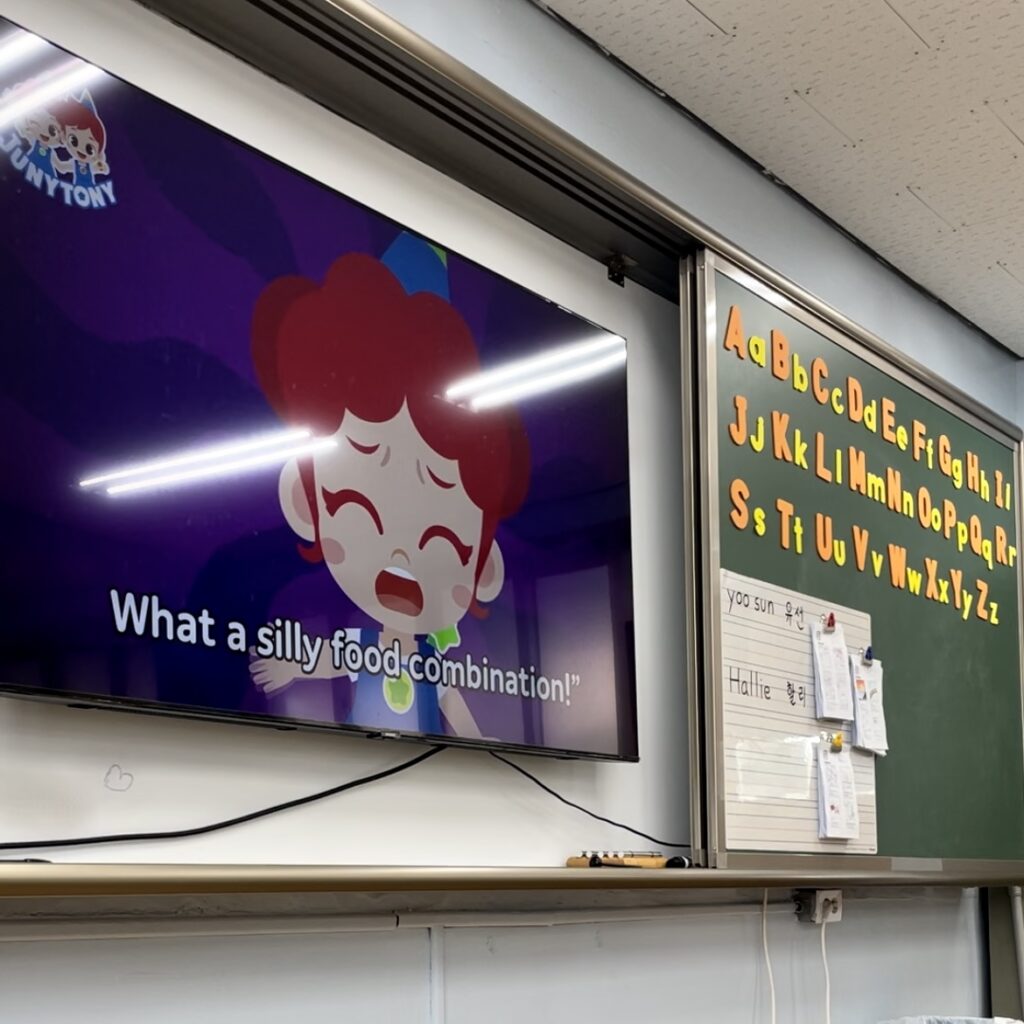
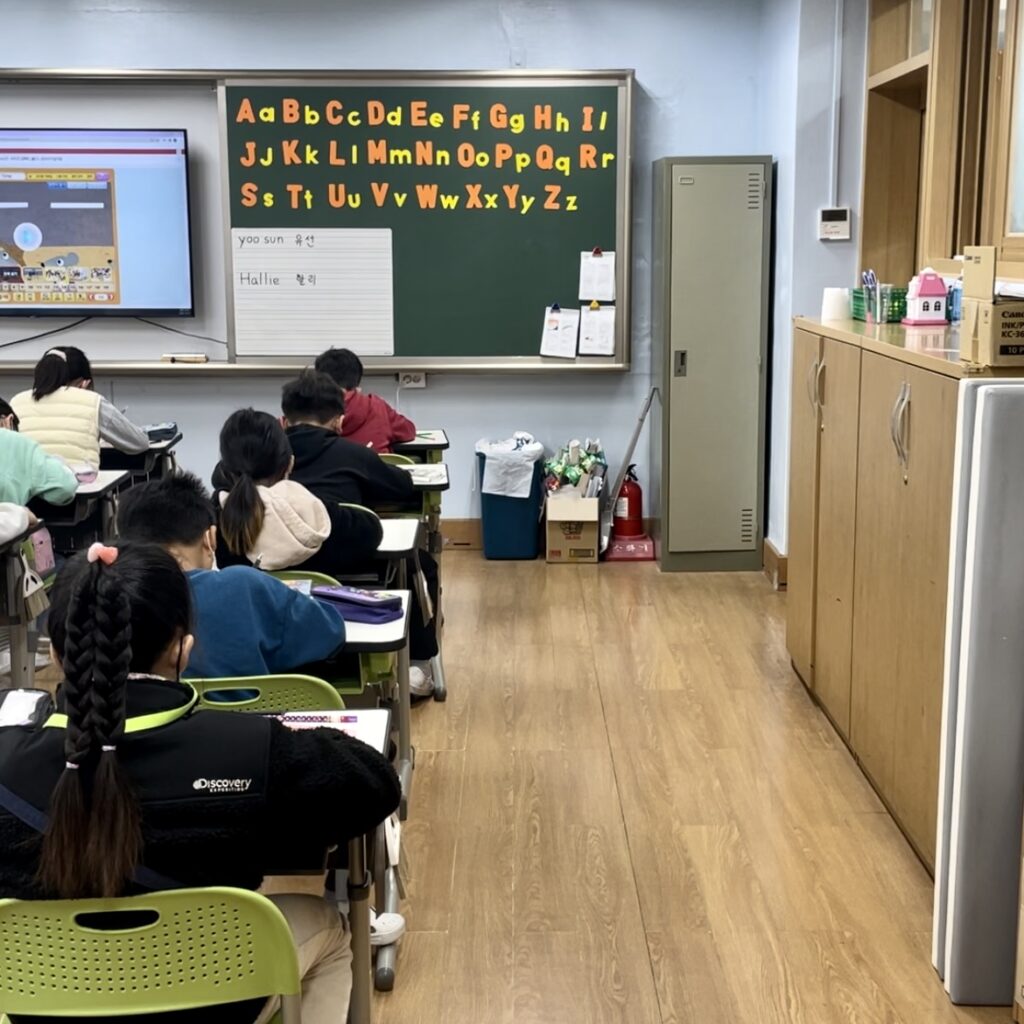
EPIK Program Review: The Verdict
After working with EPIK for 3 years, would I recommend the program? My overall verdict is YES, but not to everyone. If you are open to leaving your fate up to EPIK and embracing whatever you’re given, then EPIK is undoubtedly a great route for you. If you feel confident that you can thrive no matter your placement, then EPIK is worth the many great benefits that come along with it.
However, if you want control over anything (your timeline, school, location, apartment, salary negotiation, etc.), then you might be better suited for taking the private school route. Additionally, if you don’t like the idea of being the only foreign teacher at your school or teaching hundreds of students, this also might be the route for you. While the benefits of EPIK are better than most hagwons, taking a risk on so many unknowns might not be worth it.
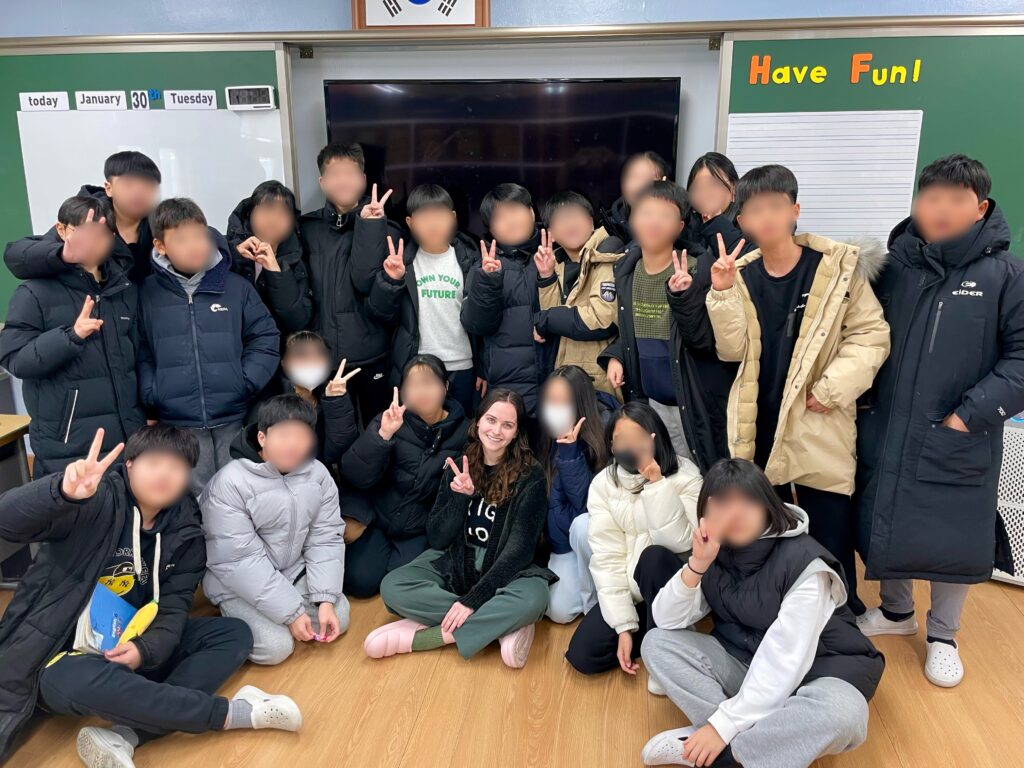
I hope this EPIK Program review has helped you decide whether EPIK is the right program for you! It was a great decision for me and I’ve loved living and teaching in Korea. Whether you’re applying for EPIK or not, I wish you luck in the process and your journey.
Has this EPIK Program review inspired you to take action, whether it’s applying to EPIK or applying to private schools? Read my comprehensive guide on how to become an English teacher in South Korea to take the next steps.




Leave a Reply